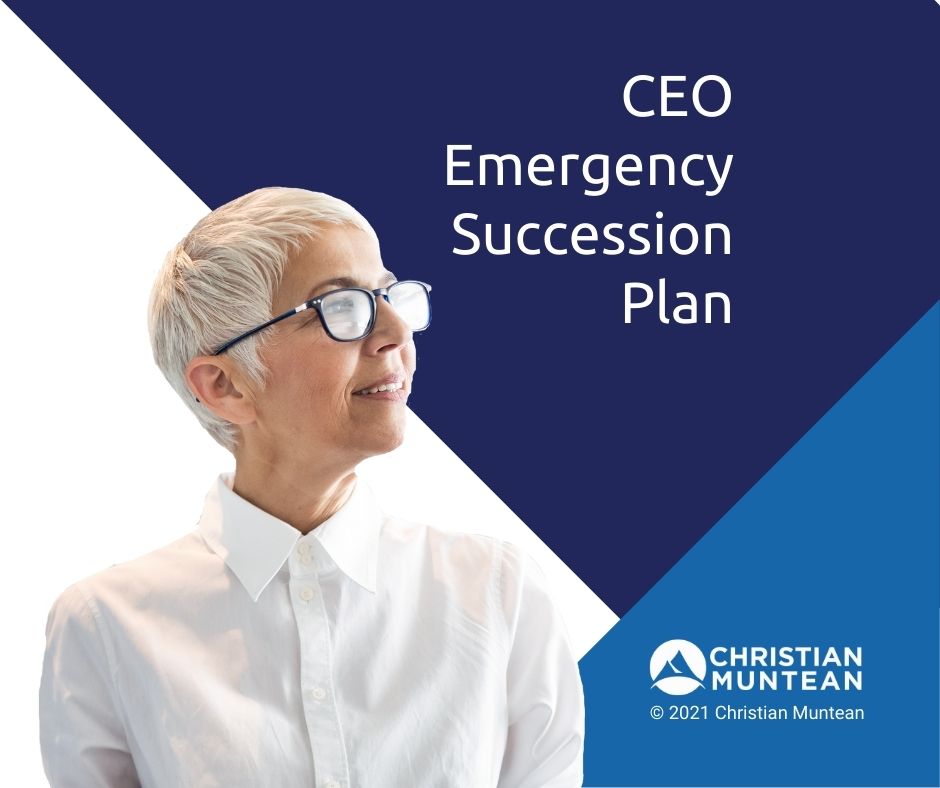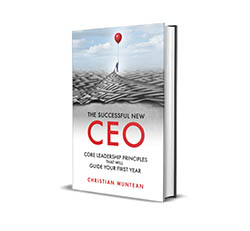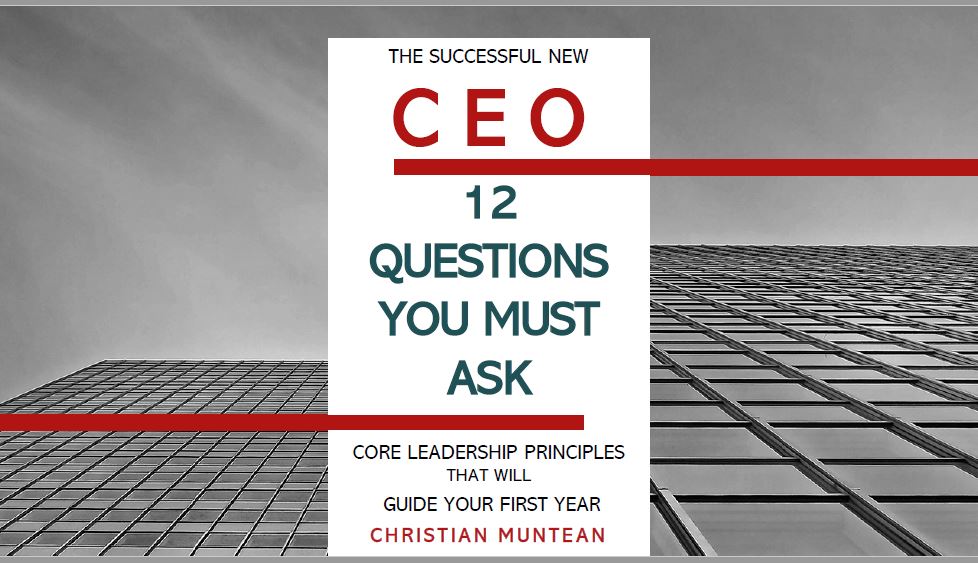How to Avoid Getting Trapped in The Trappings of Success

Many successful leaders start out wanting to achieve something noble. Or at least noble-ish. But, upon discovering success, they discover it often comes with trappings – that become a trap.When I was in high school, I played basketball. In our community, there was a group of “old guys” who would get together and play a regular game of pick-up ball. Sometimes they would tell us stories of their college glory days. They would often invite us to play with them.
 We learned quickly that the “old guys” had substituted conditioning and skill for sharp elbows, unjustified egos, quick tempers, and a flexible definition of fouls. Most of us stopped playing with them.
We learned quickly that the “old guys” had substituted conditioning and skill for sharp elbows, unjustified egos, quick tempers, and a flexible definition of fouls. Most of us stopped playing with them.
They thought they were pretty good. They had something to teach us “soft” kids. As kids, we thought these grown-ups had some growing up to do.
And we were right.
The problem wasn’t that the “old guys” were old. Looking back, they were probably all younger than I am right now. (And I can’t be old…right?) The problem was they had stopped growing. Both in skill and sportsmanship.
And when they stopped growing, they regressed. It wasn’t about their basketball game. It was about how they played.
This can happen to experienced leaders…
Especially those who’ve comfortably held a position for a long time.
First, everyone has their “stuff.”
For most people, our “stuff” creates friction in life. It holds us back in some way. “Stuff” might be confidence issues, addictions, or dysfunctional relational patterns. Whatever.
However, sometimes successful people have learned to use their “stuff” to drive success. For example, if they had an absent parent, the emotions around this may fuel a drive to “be someone”.
Someone who grew up in a home with an alcoholic parent may have learned to fix everyone’s problems.
Perhaps a leader had been taken advantage of by a former business partner. The resentment and anger may drive them to build a better company to prove they can or even push their former partner out of business.
This is a problem because needing to “be someone” can cause leaders to become resistant to critique.
The child of the alcoholic brings co-dependent dynamics into their workplace culture.
Resentment and anger can begin to ‘free-float’ and be directed toward new partners or team members.
Because these unhealthy drives helped produce success, leaders often tend to minimize them or deny their toxic nature.
Once success has been achieved, at any level, it becomes increasingly difficult for the leader to acknowledge “stuff.”
Early on in a career, weaknesses or challenges were almost assumed. But as a leader builds strength, it’s easier to deny them – or reinterpret them as necessary ingredients for success.
Now the “stuff” is just toxic, it no longer fuels success. But the leader is unwilling to face it or part with it.
This is common.
Secondly, leaders get trapped in the trappings of success
Success, for leaders, introduces them to some element of power, respect, influence, comfort, and/or increased resources. On the way to building success, there was often a need to grow, learn, ask for help, depend on others, and so on. But that decreases over time.
At a certain point, successful people can start to forget how to do those things: Grow, learn, ask for help, and depend on others. They all require acknowledging weaknesses or mistakes. They all feel humble. None feel fun.
In the effort to protect their success, they forget the effective behaviors and mindsets that created it. They might cognitively remember them and be able to speak about them eloquently. But they are often no longer a part of their lifestyle.
The Antidote
In my work with successful leaders who are also avoiding the foolishness of success, I’ve observed a few things:
1) Many have failed, significantly, at some point. Perhaps several times. I believe these experiences anchored their awareness that failure was and still is a possibility. But so is recovery. They aren’t paranoid about failure. But they don’t act entitled to success.
2) They are learners. They keep taking classes, developing new skills, taking on hobbies, going to counseling. They are comfortable not being the smartest or most put-together person in the room. In fact, they actively seek out opportunities and relationships where they will be challenged.
3) They do difficult things. They don’t seek comfort. They push themselves. Many push themselves physically, taking on personal fitness or athletic challenges even into old age. They enter difficult conversations. They allow or even seek relational, emotional, spiritual, or financial challenges.
4) They refuse to live life alone – they practice transparency. They refuse to be “alone at the top.” They actively cultivate peer relationships. They build connections and are open with people whom they look up to, whom they wouldn’t want to disappoint.
5) They remain grounded in an other-centered purpose. Service to others drives them. They don’t allow this to become reversed and look to be served personally. They retain their true north and remind themselves of it regularly.
Conclusion
Have you already achieved success? Don’t run the risk of being the last person to recognize the problem. Few things are as sad as a leader who people pretend to respect. Begin to practice the antidote behaviors.
Are you still building or growing in your success? Now is the time to start applying the antidote. Make them habits. These behaviors will not only help you build success but they’ll also protect you once you’ve found it.
Take good care,
Christian
Did you miss it? Catch my interview on the rebroadcast of the Shrimp Tank podcast, the #1 Entrepreneur podcast in America, here: http://bit.ly/40aG3ZO
𝗧𝗵𝗲 𝗕𝗲𝘀𝘁 𝗧𝗶𝗺𝗲 𝘁𝗼 𝗖𝗿𝗲𝗮𝘁𝗲 𝗔𝗻 𝗘𝗺𝗲𝗿𝗴𝗲𝗻𝗰𝘆 𝗦𝘂𝗰𝗰𝗲𝘀𝘀𝗶𝗼𝗻 𝗣𝗹𝗮𝗻 𝗶𝘀 𝘽𝙚𝙛𝙤𝙧𝙚 𝗬𝗼𝘂 𝗡𝗲𝗲𝗱 𝗜𝘁.
Be prepared for a smooth transition in the event of an unplanned emergency succession. My guide will show you step-by-step how to devise your own plan.
Free Leadership Resources
Whether you are a new CEO, thinking of succession or exit, or wanting to strengthen your leadership and your team, I’ve got resources to help:
Enhancing your leadership skills
Are you interested in learning more about becoming a successful CEO? If so, get a free copy of my book The Successful New CEO. Not a new CEO? I’ve been told by “old hands” that they felt any CEO should read this. So, click here to get your copy today.
by “old hands” that they felt any CEO should read this. So, click here to get your copy today.
There are 𝟭𝟮 𝗰𝗿𝗶𝘁𝗶𝗰𝗮𝗹 𝗾𝘂𝗲𝘀𝘁𝗶𝗼𝗻𝘀 to ask before accepting a new CEO position. Do you know what they are? Instantly download my free e-book here.
Let’s connect.
I’m passionate about helping leaders to create workplaces they love going to and increasing the value of the services they offer. My results-oriented approach is tailored to each client’s specific situation and needs. As a leadership coach, I have developed a wealth of resources to help you and your team grow and become stronger.
Weekly Newsletter – sign up to receive my weekly articles addressing critical leadership challenges and issues.
The Leadership Coach Podcast – In my podcast, we explore effective, high-impact, and enjoyable leadership. Subscribe.
Find the value of your company with my free assessment tool: The Value Builder System
The Value Builder System™ is a 13-minute online questionnaire that evaluates your business on the eight factors that contribute more to its attractiveness and value. These factors are scored on a scale of 1-100. Businesses that score over 80 are likely to command 70%-100% higher value than others.
Opportunities
Executive and Leadership Coaching: Do you feel overwhelmed? Are you not getting the results you expect from the effort you are putting in? Do you find yourself facing similar challenges time and time again? Would you like to change specific ways of relating or reacting? If you would like to experience predictable, measurable growth Contact me.
Profitable Exit Strategy Workshop: Are you a business owner or partner? Over 55? Starting to think about exiting your business or active management in the next 3-5 years?
- Curious about what your business might be worth?
- Would you like to discover the specific steps you need to take to increase its value and become highly attractive to a buyer?
- Are you planning on handing it over to family or employees and you want to ensure long-term success?
If so, contact me now
Article Categories
Popular articles

Download my free 10-page eBook:
How To Accomplish More Without Doing More:
Eight Proven Strategies To Change Your Life
Discover how to save eight hours during your workweek-even if you're too busy to even think about it. The resource every maxed out executive needs.

